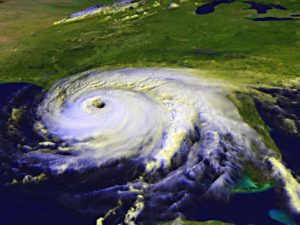Natural disasters can be nightmares for both landlords and tenants, causing expensive damage and leaving many rental properties without basic services like electricity, hot water and heat. In the aftermath of large-scale disasters, many landlords and tenants both wonder “Can the landlord legally require rent payments if the rental property is without amenities like electricity, hot water and heat?”

The short answer is a qualified yes; landlords can still require the rent to be paid, as tenants have a contractual obligation to pay it. But if rent disputes end up in court, judges may well side with the unhappy tenant who has been living without electricity, heat, or hot water, rather than the oft-perceived “greedy” and “heartless” landlord (regardless that the landlord still has to pay the mortgage).
Alienating tenants is also a bad business decision, as it often equates to having to find new ones, once the repairs are finished and the lights are back on.
Alternatives include offering a one-time reduced rent or rent credit to compensate tenants for the period when the rental units are uninhabitable. However, landlords may have trouble collecting even reduced rent when the rental property is uninhabitable, regardless of whether it is the landlord’s fault, as tenants sometimes have legal grounds for breaching their lease agreement in these cases. Leases and state laws differ, but most state- and provincial landlord-tenant codes protect renters from inhabitable living conditions, even if caused by “fire or other casualty.” Under these provisions, tenants often have the right to break their lease agreement and vacate early if the rental unit is not made habitable within 30 days.
Landlords might consider requiring rent payments made on time, while assuring tenants that a credit will be made once the problem has been resolved. That way, landlords can make decisions about how much to credit after the crisis is over, and they know the extent of the problem. This prevents tenants from growing accustomed to less expensive rent, or making rent payments late.
The best way landlords can address disasters is through preparedness, particularly by maintaining comprehensive insurance and remaining capitalized. Good rental property insurance includes coverage for lost rent due to disasters such as storms and fires, and rental income insurance is available as well. Keeping a deep cash cushion on hand is also critical; it may not be possible to predict natural disasters such as hurricanes and blizzards, but smart landlords can and do prepare for the unpredictable by staying insured and keeping cash on hand.
learn more at http://www.reiclub.com/realestateblog/can-landlords-collect-rent-after-a-natural-disaster/#more-16640